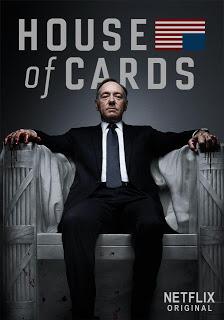
View Trailer
I just began House of Cards, the new political series on Netflix exclusive. A good idea for Netflix to commission their own series, as this has been HBO's success as well as other networks, and Netflix has the corner on streaming. Television series are sometimes able to give us the power of film, extended over many episodes.
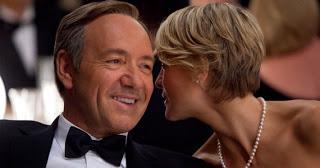
Kevin Spacey is well-cast as congressman Frank Underwood; he carries gravitas, fear, and a certain resigned sadness to the life he has chosen. His wife Claire (Robin Wright), is as cool as they come. Both are in love with power, more so even than each other? Can such an arrangement last? One thinks of the Clintons.
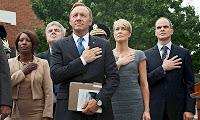 The world they live is a drab one; dinner parties where guests wink and nod at each other with fake smiles, long nights up calculating the next move on the political chess board, meetings at 4a.m. in cafes. This is an interesting underside to the glitter and glitz of politics, what is seen on the news. It is a world that would make me miserable, I know, if I were forced to live in it.
The world they live is a drab one; dinner parties where guests wink and nod at each other with fake smiles, long nights up calculating the next move on the political chess board, meetings at 4a.m. in cafes. This is an interesting underside to the glitter and glitz of politics, what is seen on the news. It is a world that would make me miserable, I know, if I were forced to live in it.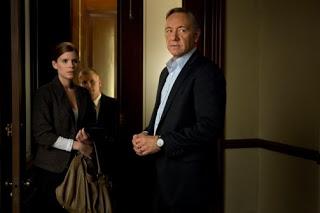
Danger ahead: Zoe Barnes boldy approaches Frank Underwood
The dialog is very well done. It is rhythmic, and Spacey's monologues have a poetry to them that belie a beauty of character underneath the coldness. How will this aspect of himself develop over the series? There is real danger in the younger journalist Zoe Barnes (Kate Mara) involvement with him; will it end up destroying them, as it has so many in Washington?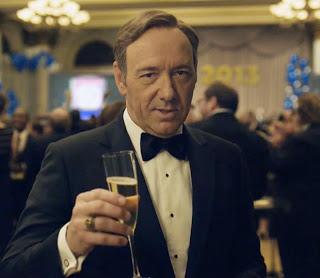
Unique feature: the Return of the Monologue
Perhaps the show's most unique feature: Spacey looking directly into the camera and sharing thoughts with the viewer. An interesting device that lends a sense of candor to his character, while also breaking the barrier between screen and viewer. It calls attention to the fact that this is theater, contrived for us to watch.We feel "in on the joke" with Spacey. A testament to how cynical we have become. Will the series endeavor to show that there are still pure motives despite this sense that it is all a stupid game?
Read The Guardian's John Crace's comparison of this to previous House of Cards
